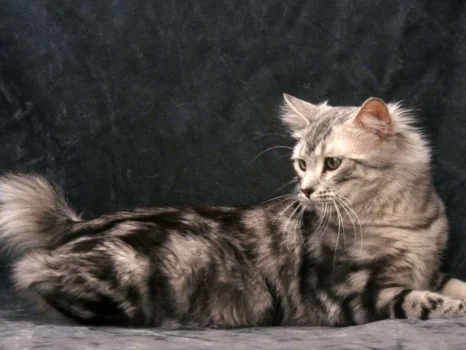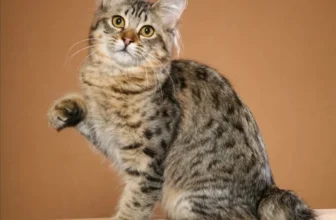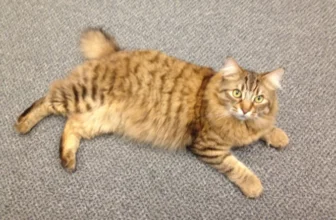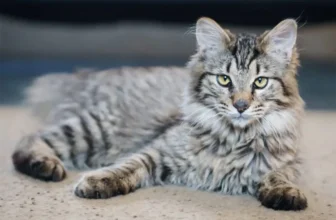As breeders, we all want our American Bobtails to be healthy, happy, and thriving. However, knowing which genetic diseases your cat may be predisposed to can be a challenge. Genetic testing can help breeders identify potential genetic health issues early on and make informed breeding decisions that can improve the health and welfare of the breed. But what exactly is genetic testing, and why is it so crucial for American Bobtail breeding? In this article, we will explore the importance of genetic testing in American Bobtail breeding and its benefits for the breed. Let’s dive right in!
Why Genetic Testing is Crucial for American Bobtail Breeding
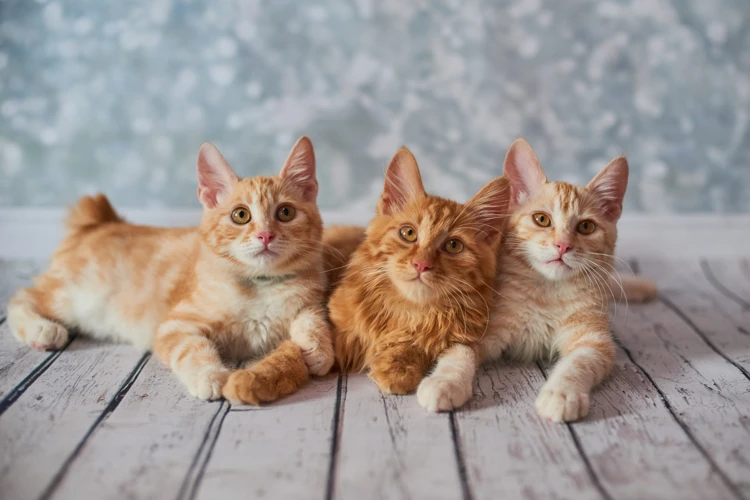
As a cat lover, you may have heard about the American Bobtail breed, notable for its distinctive short tail and affectionate personality. American Bobtails are a relatively new breed, developed less than 50 years ago through selective breeding programs. While the breed’s charming appearance and temperament have made it a favorite among cat lovers, there are still potential genetic health risks associated with American Bobtails. This is why genetic testing is vital to ensure the continued health and well-being of the breed. In this section, we’ll explore the reasons why genetic testing is crucial for American Bobtail breeding and its benefits. Understanding the importance of genetic testing is essential for anyone interested in breeding or owning an American Bobtail cat.
1. Accurate Disease Risk Assessment
Accurate disease risk assessment is one of the most significant benefits of genetic testing in American Bobtail breeding. With the help of DNA testing, breeders can identify potential health issues in their breeding lines. Each American Bobtail kitten carries two copies of each gene inherited from its parents, and some of these genes carry the risk of certain diseases. By conducting genetic tests, breeders can determine whether a cat is a carrier of a particular genetic disease or not.
This information can be used to make informed breeding decisions and reduce the risk of producing kittens with inherited diseases. For example, if a female is identified as a carrier of a certain disease, a breeder can choose a male without that same genetic mutation to prevent passing the disease to their offspring. By doing so, breeders can significantly reduce the number of kittens born with inherited diseases, improve the overall health of the breed, and prevent financial losses.
Genetic testing allows breeders to avoid producing double recessive kittens that are likely to suffer from severe diseases such as Polycystic Kidney Disease. It is critical to conduct genetic testing to understand the health status of breeding cats and make informed decisions for selecting the best breeding pairs.
Without genetic testing, breeders are not aware of the presence of certain diseases in their breeding cats. This could result in breeders producing kittens with different genetic diseases, leading to an unhealthy breeding line that can cause a lot of pain and distress to both the breeder and buyer. Accurate disease risk assessment is one of the significant benefits of genetic testing in American Bobtail breeding, and breeders should conduct these tests to ensure the health and welfare of the breed.
To learn more about American Bobtail breeding, please check out our webpage on the history of American Bobtail breeding or explore key figures in American Bobtail breeding.
2. Improved Breeding Strategies
Genetic testing offers breeders the possibility to make informed decisions in their breeding programs. By testing American Bobtail cats, breeders can obtain crucial genetic information about their cats that can be used to develop improved breeding strategies.
One way it does this is by allowing breeders to identify cats that carry a specific genetic trait, such as a disease, and to exclude them from their breeding programs. This reduces the probability of passing the genetic disease on to future generations. Through genetic testing, breeders can also identify cats with a desirable trait, which could lead to developing a new bloodline or improving an existing one.
Genetic testing can help breeders to identify and maintain genetic diversity within their bloodlines. Inbreeding – which can happen when breeders only use closely related cats in their breeding programs – can result in various health problems and issues such as reduced fertility, shorter lifespan, and abnormalities. Breeders can use genetic testing to identify and avoid inbreeding, thereby ensuring the health and welfare of their cats, which ultimately leads to developing a stronger and healthier breed.
Genetic testing is an essential tool for breeders looking to improve their American Bobtail breeding programs. It enables them to make informed decisions about their cats, reduce the risk of inherited diseases, and strengthen the breed as a whole. By incorporating genetic testing into their breeding practices, breeders can help ensure the long-term health and welfare of American Bobtail cats, benefiting both the cats and the breeders.
3. Reduced Risk of Inherited Disease
Genetic testing is a valuable tool that can help reduce the risk of inherited diseases in American Bobtail breeding. With the help of genetic testing, breeders can identify carriers of specific diseases and limit their involvement in future breeding programs. This can lead to a gradual decrease in the incidence of inherited diseases in American Bobtail cats over time.
Here are some reasons why genetic testing can help reduce the risk of inherited diseases:
- Identifying carriers: Genetic testing can identify carriers of harmful genetic mutations that increase the risk of inherited diseases. By identifying these carriers, breeders can avoid breeding them and reduce the risk of passing on these mutations to future generations.
- Informed breeding: Genetic testing provides breeders with important information about the genetics of their cats. This knowledge can be used to make informed breeding decisions that reduce the risk of inherited diseases. For example, if a cat is a carrier of a specific disease, a breeder can choose a mate that is not a carrier, reducing the likelihood that their offspring will inherit the disease.
- Breeding for health: By using genetic testing to select healthy cats for breeding, breeders can gradually reduce the incidence of inherited diseases in the American Bobtail breed. Over time, this can lead to a healthier overall population of American Bobtails.
It is important to note that genetic testing is not a panacea for all inherited diseases. Some diseases are caused by complex interactions between multiple genes or a combination of genetic and environmental factors. However, genetic testing can still be a valuable tool for reducing the incidence of many inherited diseases in American Bobtails.
If you want to learn more about the challenges of breeding American Bobtail cats or the breed’s evolution, feel free to check out Breeding American Bobtail Cats: Challenges and Considerations or The Evolution of American Bobtail Breed Standard articles. You can also compare American Bobtails to other breeds by reading American Bobtail vs. Other Bobtail Breeds: What’s the Difference? And if you’re curious about their temperament, check out The American Bobtail Cat: Temperament and Personality Traits.
The Risks of Breeding Without Genetic Testing
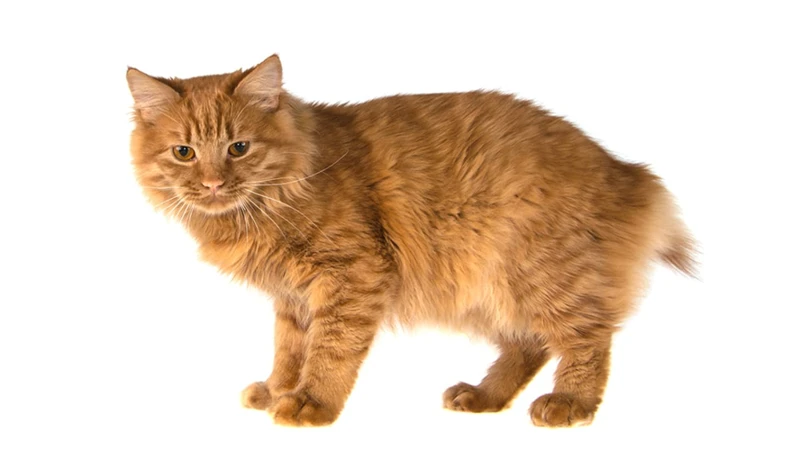
Breeding American Bobtails without genetic testing can be a risky endeavor, as it reduces the ability to make informed decisions about breeding practices. Failing to identify certain genetic traits could result in unhealthy offspring, costly veterinary bills, and even the loss of a beloved pet. Without proper genetic testing, breeders may unknowingly perpetuate the spread of inherited diseases and health ailments, leading to a diminished reputation for the breed in the long run. Let’s explore the dangers of overlooking genetic testing further.
1. Increased Risk of Inherited Diseases
Breeders who choose to ignore genetic testing and breed without properly assessing their parent’s genetic fitness expose their offspring to an increased risk of inheriting diseases. This is because without genetic testing, breeders have no way of knowing if the parent cats carry genetic mutations that increase the risk of hereditary diseases. This puts their offspring at an increased risk of inheriting these diseases and other genetic disorders. Breeding without genetic testing would mean that the offspring could suffer from conditions such as hypertrophic cardiomyopathy (HCM), a common heart condition that affects American Bobtails.
Research has shown that HCM is the most prevalent form of feline heart disease, affecting approximately one in seven American Bobtail cats. This underscores the importance of genetic testing in breeding American Bobtails to assess their risk of inheriting this disease. Breeders who neglect to test their parent’s genetics may unknowingly breed cats that are carriers of the HCM gene, leading to high morbidity and mortality rates in their offspring.
Some diseases may be hidden or silent, meaning that the parent animals may appear healthy, but carry genetic mutations that could be passed down to their offspring. For instance, two cats that appear to be HCM-free may still carry the HCM gene, putting their offspring at risk of inheriting this condition. Conclusion: Genetic testing of potential breeding cats should be considered mandatory for conscientious breeders who are committed to producing healthy American Bobtail cats.
2. Financial Losses
Breeding without genetic testing can result in significant financial losses for breeders. Here are some of the ways in which this can happen:
- Increased costs of veterinary care: American Bobtail cats that are bred without genetic testing come with a higher risk of inherited diseases. As a result, these cats may require more frequent visits to the veterinarian for treatment, medication, and other forms of care. This can lead to an increase in overall veterinary costs.
- Higher probability of unhealthy litters: Without genetic testing, breeders can produce litters that are more prone to inherited health problems. This can result in a lower demand for these kittens or a complete inability to sell them. As a result, breeders may face financial losses due to unsold kittens, lower demand, or the medical costs of kittens with health problems.
- Legal issues: If a breeder sells a kitten that later develops a genetic health issue, they could face legal repercussions. The cost of legal fees can be high and can result in financial losses for the breeder.
- Inability to breed: Inherited genetic diseases can impact the ability of American Bobtail cats to breed. If a breeder produces kittens that are carriers of inherited diseases, their ability to breed may be impacted. This leads to a decrease in revenue for the breeder.
Genetic testing plays an essential role in American Bobtail breeding not just in terms of breeding healthy cats but also to ensure financial sustainability for breeders.
Types of Genetic Tests for American Bobtails
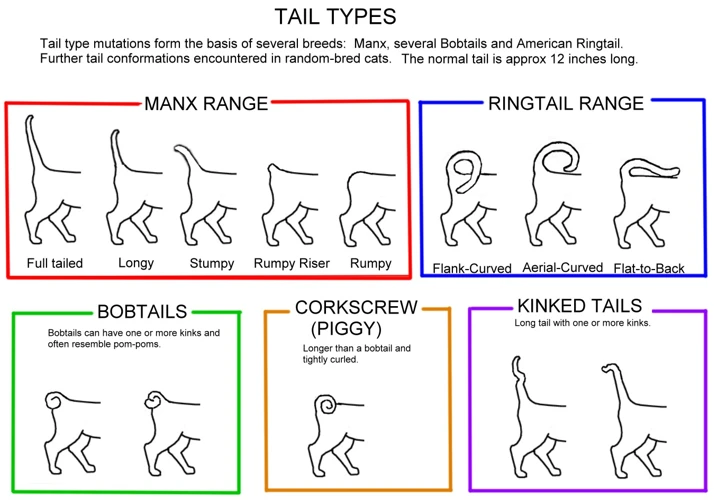
When it comes to breeding American Bobtails, genetic testing is an essential part of the process. Testing helps breeders identify any potential genetic risks, which can help reduce the occurrence of inherited diseases across the breed population. There are several types of genetic tests that breeders can take advantage of, each with its own unique benefits. Let’s explore these different types of tests and how they can benefit American Bobtail breeding programs. Whether you’re new to breeding or a seasoned professional, understanding these tests is crucial to the success of your breeding program.
1. DNA Profiling and Parentage Testing
DNA Profiling and Parentage Testing
DNA profiling and parentage testing are essential genetic tests for American Bobtail breeding because they help breeders verify the parentage of their kittens and establish correct pedigrees. This is important for tracking genetic disorders through bloodlines and reducing the risk of inbreeding.
| Test Name | What it tests for | How it’s done | Benefits |
|---|---|---|---|
| Microsatellite DNA Profiling | Genetic fingerprinting to confirm parentage | Collecting a blood or cheek swab sample, extracting DNA, and analyzing unique genetic markers | Accurate identification of parentage, reduced risk of inbreeding, and proper pedigree establishment |
| Single Nucleotide Polymorphism (SNP) Testing | Identification of genetic variations related to specific traits or diseases | Collecting a DNA sample, identifying specific genes or mutations, and comparing them to a reference panel | Early detection of potential health issues, improved breeding strategies, and better selection of breeding pairs |
By using DNA profiling and parentage testing, breeders can ensure that their kittens have the best possible start in life. These tests also make it easier for breeders to identify the correct parents of each kitten, which is important for registering the kitten with the appropriate governing body.
2. Genetic Disease Testing
Genetic disease testing is a crucial aspect of genetic testing for American Bobtail breeding. These tests help identify an individual’s risk of developing a specific genetic disease by analyzing their DNA. There are several genetic tests available for American Bobtail cats, and these tests can help breeders make informed decisions about which cats to breed together to avoid producing offspring with inherited health issues.
Types of Genetic Disease Testing
- Hypertrophic Cardiomyopathy (HCM) Testing: HCM is a common genetic disease in American Bobtails, which results in thickening of the heart’s walls. This condition can lead to heart failure and sudden death. HCM testing identifies if a cat is carrying the HCM gene or not, allowing breeders to make informed breeding decisions.
- Polycystic Kidney Disease (PKD) Testing: PKD is a genetic disease that results in the formation of fluid-filled cysts in the kidneys, leading to kidney failure. PKD testing helps identify whether an American Bobtail carries the PKD gene or not, and breeders can avoid breeding cats that carry the gene to reduce the risk of producing offspring with PKD.
- Progressive Retinal Atrophy (PRA) Testing: PRA is a genetic disease that leads to progressive vision loss and blindness. PRA testing identifies whether a cat carries the PRA gene or not, allowing breeders to make informed breeding decisions that minimize the risk of producing offspring with PRA.
The Importance of Genetic Disease Testing
Genetic disease testing is essential for American Bobtail breeding because it helps breeders identify cats with genetic health issues and avoid breeding them to prevent passing on these health issues to their offspring. The knowledge of a cat’s genetic health status also helps breeders to make informed breeding decisions that reduce the risk of producing cats with inherited health problems. Ultimately, this promotes the improved health and welfare of American Bobtails, ensuring that these beautiful felines can lead healthy and fulfilling lives.
3. Genetic Diversity Testing
Genetic diversity testing is a crucial component of American Bobtail breeding that ensures the long-term health and well-being of the breed. This type of genetic testing analyzes the genetic makeup of individual cats to determine the level of genetic diversity present in the breed.
Why is genetic diversity important?
Genetic diversity is important because it helps to reduce the prevalence of inherited diseases and promotes overall health and vitality within a population. When a breed is too closely related, there is a higher risk of inbreeding depression, which can lead to a wide range of health problems such as decreased fertility, weakened immune systems, and increased susceptibility to inherited diseases.
How is genetic diversity testing done?
Genetic diversity testing is done through the use of DNA markers that are specific to American Bobtails. These markers are analyzed to determine the level of genetic diversity within the breed. The results of this type of testing allow breeders to make informed decisions about which cats to breed with to preserve genetic diversity within the population.
What are the benefits of genetic diversity testing?
The benefits of genetic diversity testing are wide-ranging. By identifying cats with a high level of genetic diversity, breeders can make informed decisions about which cats to breed with to ensure the long-term health and well-being of the breed. Additionally, genetic diversity testing can help to reduce the prevalence of inherited diseases, which can be costly and time-consuming to treat.
Here is an example of how the results of genetic diversity testing might be organized in a table:
| Cat Name | Genetic Diversity Score |
|---|---|
| Fluffy | 0.75 |
| Whiskers | 0.65 |
| Mittens | 0.85 |
By analyzing the genetic diversity scores of individual cats, breeders can make informed decisions about which cats to breed with to ensure the long-term health and well-being of the American Bobtail breed.
The Benefits of Genetic Testing in American Bobtail Breeding
As the saying goes, “knowledge is power,” and in the world of American Bobtail breeding, genetic testing provides invaluable knowledge that can improve the health, welfare, and future of the breed. By identifying genetic markers for disease and diversity, breeders can make informed decisions to cultivate a healthier, more diverse population of American Bobtails. Let’s explore the various benefits of genetic testing and why it is crucial for the continued success of American Bobtail breeding.
1. Improved Health and Welfare of American Bobtails
Genetic testing plays a crucial role in improving the health and welfare of American Bobtails by identifying the presence of any disease-causing genes or mutations. Using genetic tests, breeders can avoid breeding cats with known health risks that may compromise the health and welfare of future generations.
The benefits of improved health and welfare for American Bobtails include:
- Reduced risk of inherited diseases – By identifying and avoiding breeding cats with known health issues, breeders can reduce the risk of inherited diseases in future generations. This results in a healthier population and fewer cases of inherited diseases, leading to an overall better quality of life for American Bobtails.
- Better understanding of genetic diseases – Genetic testing helps breeders to gain a better understanding of the genetic diseases that affect American Bobtails. With this knowledge, they can make informed breeding decisions, avoid breeding cats that carry harmful mutations, and work towards eliminating these genetic diseases from the breed.
- Improved breeding practices – By using genetic testing to identify good breeding pairs and avoid cats with known health issues, breeders can improve the overall quality of the breed. This includes selecting cats with desirable physical traits, good temperament, and good health.
- Increased lifespan – By identifying and addressing inherited diseases, breeders can help to extend the lifespan of American Bobtails. This results in more healthy, happy years for the cats in this breed and increased satisfaction for pet parents.
- Heightened awareness – Genetic testing also raises awareness of the importance of responsible breeding practices and the significance of genetic health testing among breeders, veterinarians, and pet parents.
Genetic testing serves as a crucial tool for improving the health and welfare of American Bobtails. Through responsible breeding practices and the use of genetic testing, breeders can strive towards producing healthy, happy cats with a longer lifespan and a reduced risk of inherited diseases.
2. Better Breeding Strategies
Genetic testing enables breeders to make more informed decisions about pairing American Bobtails for breeding purposes. The ability to identify specific genetic traits enables breeders to select cats that complement each other’s characteristics, resulting in improved offspring. Through genetic variations, breeders can select cats with reduced risk of inherited disease, which generally leads to healthier populations.
Here are some of the ways that genetic testing can help breeders develop a better breeding strategy:
- Improved Selection Criteria: With genetic testing, breeders can analyze the DNA of American Bobtails to determine their genetic makeup. This information is then used to develop a breeding strategy that will increase genetic variation and promote the health and welfare of the breed.
- Genetic Diversity: Introducing new genetics into the breeding program can be done with the aid of genetic testing. By analyzing the genes of cats, breeders can determine which individuals are likely to possess traits that may improve the health and welfare of the breed. Selecting individuals with diverse genetics means that the breeders can breed to produce cats with a diverse range of characteristics while reducing the likelihood of inbreeding.
- Reduced Disease Risk: By identifying specific genetic mutations that cause inherited diseases, breeders can avoid breeding cats that carry those mutations. This prevents the transmission of these inherited diseases and reduces the prevalence of the disease in the American Bobtail population.
Genetic testing can help breeders develop a better breeding strategy by identifying individuals with desirable traits, working to maintain genetic diversity and, most importantly, creating a healthier population.
3. Reduce Inherited Health Diseases Across the Breed
One of the major benefits of genetic testing in American Bobtail breeding is the potential to drastically reduce the incidence of inherited health diseases across the breed. By identifying carriers of genetic diseases and avoiding breeding them, we can prevent the spread of these diseases to their offspring. Here are some ways genetic testing can help reduce inherited health diseases in American Bobtails:
- Targeted Breeding: Genetic testing can help breeders identify which cats have certain genetic diseases and which cats are carriers. This allows them to avoid breeding cats with those diseases or carriers of those diseases together, which can help decrease the incidence of those diseases in future generations of American Bobtails.
- Informed Decision Making: When breeders have information about the genetic health of their cats, they can make more informed decisions about which cats to breed and which cats to retire from breeding. This can help prevent catastrophic outcomes like having entire litters with serious genetic diseases.
- Open Dialogue: Genetic testing can help improve communication and collaboration within the American Bobtail breeding community. When breeders share information about their cats’ genetic health, they can work together to make breeding decisions that promote the health and well-being of the breed as a whole.
- Preventative Measures: Genetic testing can help breeders take preventative measures to ensure the health of their cats, even if they do carry certain genetic diseases. For example, if a cat carries a gene for a certain disease but does not have symptoms, a breeder may choose to monitor that cat more closely or make lifestyle changes to decrease their risk of developing the disease in the future.
Genetic testing is an important tool for reducing the incidence of inherited health diseases in American Bobtails. By using targeted breeding practices, making informed decisions, promoting open dialogue, and taking preventative measures, breeders can work together to ensure the long-term health and well-being of the breed.
Conclusion
In conclusion, it is evident that genetic testing is crucial for American Bobtail breeding. Not only does it provide an accurate assessment of disease risk but it also helps in improving breeding strategies and reducing the risk of inherited diseases. Breeding without genetic testing can result in increased risks of inherited diseases and financial losses.
There are different types of genetic tests that can be undertaken for American Bobtails, including DNA profiling and parentage testing, genetic disease testing, and genetic diversity testing. Each of these tests serves a unique purpose and can be of immense benefit in improving the health and welfare of American Bobtail cats.
By conducting genetic tests, breeders can develop better breeding strategies and ensure that inherited health diseases are reduced. This not only benefits individual cats and breeders but also the breed as a whole.
In conclusion, genetic testing is a powerful tool that can significantly impact American Bobtail breeding positively. It is therefore crucial for breeders to take advantage of available genetic testing options to improve the health and welfare of their cats while also advancing the breed. With the benefits that come with genetic testing, it is clear that it should be an essential aspect of American Bobtail breeding.
Frequently Asked Questions
What is genetic testing?
Genetic testing involves analyzing DNA samples to identify specific genes, mutations, or variations in genetic sequences that may indicate the presence of inherited diseases or traits.
What are American Bobtails?
American Bobtails are a breed of domestic cat known for their short, stubby tails and distinctive wild, bobcat-like appearance.
Why is genetic testing crucial for American Bobtail breeding?
Genetic testing is crucial for American Bobtail breeding to accurately assess disease risk, improve breeding strategies, and reduce the risk of inherited diseases.
What are the risks of breeding without genetic testing?
Breeding without genetic testing can increase the risk of inherited diseases and result in financial losses due to unexpected health issues or the production of unhealthy kittens.
What types of genetic tests are available for American Bobtails?
There are several types of genetic tests available for American Bobtails, including DNA profiling and parentage testing, genetic disease testing, and genetic diversity testing.
What are the benefits of genetic testing in American Bobtail breeding?
The benefits of genetic testing in American Bobtail breeding include improved health and welfare, better breeding strategies, and a reduced risk of inherited diseases across the breed.
How can genetic testing improve breeding strategies?
Genetic testing can help breeders identify carriers of specific disease-causing genes and implement selective breeding strategies to avoid producing kittens with those genes.
Can genetic testing completely eliminate the risk of inherited diseases in American Bobtails?
No, genetic testing cannot completely eliminate the risk of inherited diseases, but it can significantly reduce the risk by identifying carriers and implementing selective breeding strategies.
How can breeders access genetic testing services for American Bobtails?
Breeders can access genetic testing services for American Bobtails through veterinary clinics, specialized animal genetics laboratories, or online genetic testing companies.
Is genetic testing expensive?
The cost of genetic testing can vary depending on the type and complexity of the test, but it is generally considered a worthwhile investment for breeders to improve the health and welfare of their cats.

